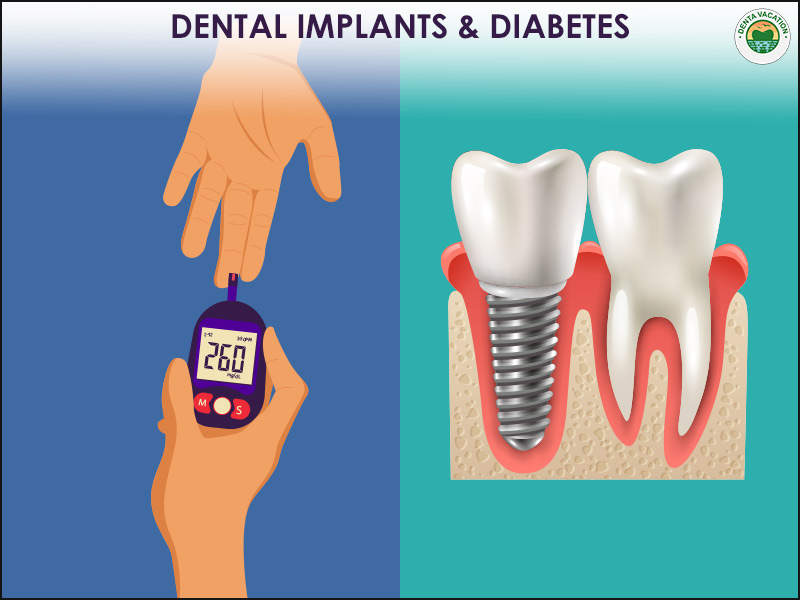Living with diabetes can be more challenging, especially when you throw tooth loss into the mix. If you do not feel comfortable wearing dentures, you may wonder if dental implants are a viable teeth replacement option. Unlike dentures, dental implants require Sarnia patients with diabetes to undergo an oral surgical procedure. While diabetes can complicate the healing process, it does not necessarily prevent you from this treatment.
Are Managing Your Diabetes Well?
Numerous studies have affirmed that people with controlled diabetes have nothing to worry about the risk of dental implant complications more than non-diabetics. However, patients who fail to manage their conditions are more at risk of post-op infection and implant failure. To ensure the success of the treatment, consult a trusted implant dentist about how to manage your diabetes.
Type 1 vs Type 2 Diabetes:
While type 1 diabetes is more difficult to manage than type 2 diabetes, it does not necessarily prevent type diabetes patients from getting dental implants. Type 1 diabetes is caused by the insufficient or zero production of insulin. That is why patients with this condition require regular insulin shots to ensure an optimum level of glucose in their blood. Type 1 diabetes can put patients at risk of reduced bone density and vascular disease, which affect the dental implant treatment success rate.

Type 2 diabetes occurs when the pancreas fails to produce sufficient levels of insulin, or when the cells become resistant to insulin. It prevents the cells from absorbing blood glucose. When the glucose is not metabolized, it causes the blood sugar to increase. When left uncontrolled, high blood sugar can affect the function of the circulatory system. Not only does it affects your immune system but also the success of your dental implant surgery.

Dental Implant Risks Associated with Diabetes:
Since people with diabetes do not produce their insulin or are not utilizing it properly, their body fails to regulate their glucose levels properly. This can result in various health problems, particularly their body’s natural ability to heal from surgery, including dental implants. If you are living with type 1 or 2 diabetes and are considering dental implants for missing teeth, here are some factors you need to understand before getting the treatment:
● Slower Healing Time Both type 1 and type 2 diabetes may affect the length of your recovery. Factors, such as genetic defects, low insulin levels, and higher blood sugar levels, can affect the body’s ability to heal wounds.
● Higher Risk of Infection Diabetes can affect immune function, making the risk of infection after a surgical procedure a common problem. When it comes to oral surgery, soft tissue complications, such as dental abscesses and other oral infections are prevalent in people with diabetes.
Increasing Your Potential for a Successful Procedure:
Taking utmost care of your body and mouth can increase the success rate of dental implant treatment and reduce the risk of complications. The National Journal of Maxillofacial Surgery confirms that diabetics getting dental implants have a success rate of at least 85%.

Additionally, dental experts reported that the chances of long-term success significantly increase if the patient gets through the first year. Here are some factors that will make you an ideal candidate for dental implant treatment:
● Controls and maintains a healthy level of blood sugar in the months before the dental implant surgery.
● Optimum health and gets the all-clear from your primary medical physician
● Excellent dental health condition
● Must agree to take a preventative course of antibiotics before and following the surgery
● Sufficient bone tissue to anchor the dental implant
A skilled and highly experienced implant dentist in Oakville will perform a comprehensive assessment before prescribing a dental implant surgery. If you think you are a good candidate for implants, book an appointment to learn if this dental solution is the best option for you.

